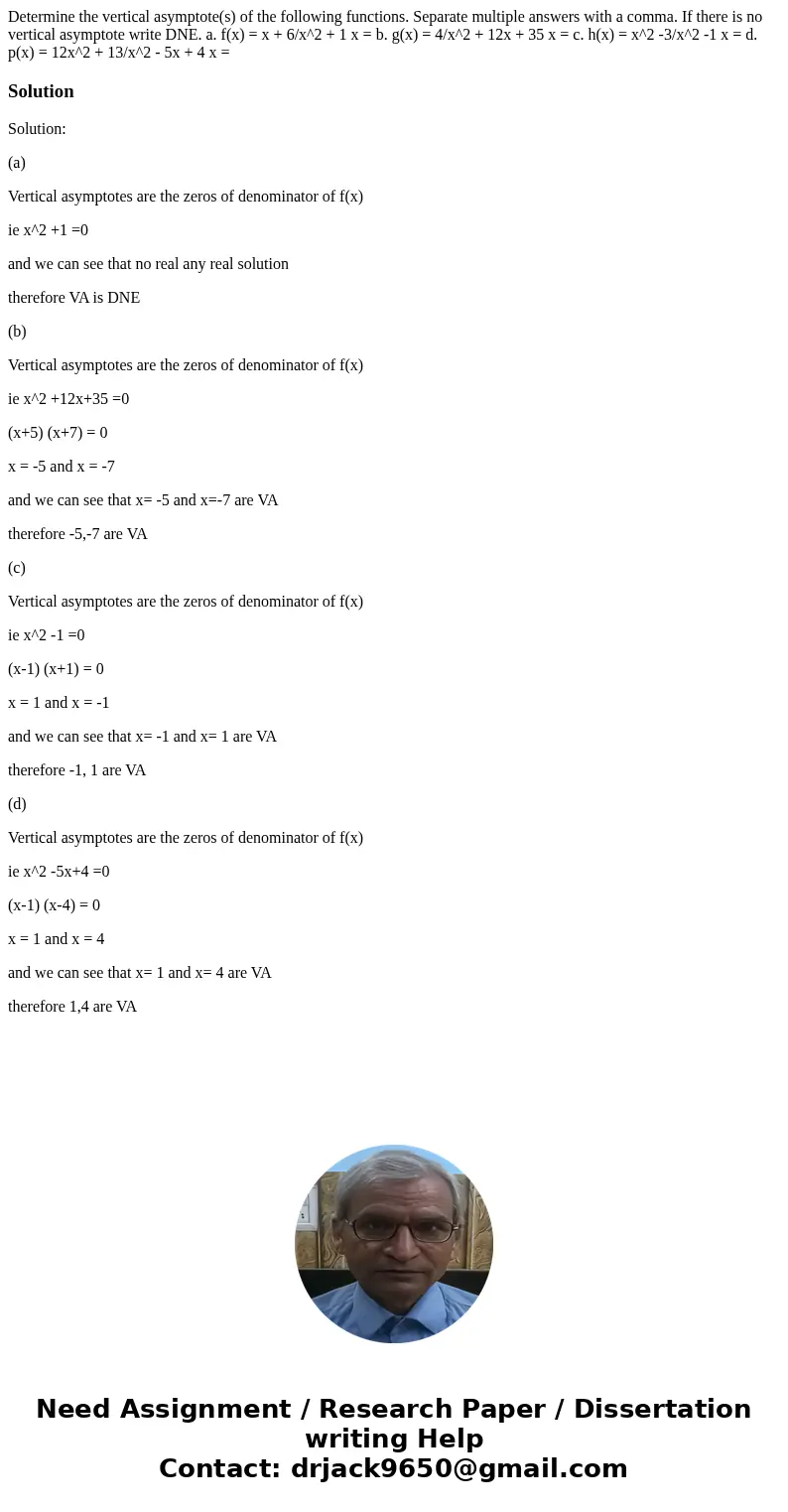Determine the vertical asymptotes of the following functions
Determine the vertical asymptote(s) of the following functions. Separate multiple answers with a comma. If there is no vertical asymptote write DNE. a. f(x) = x + 6/x^2 + 1 x = b. g(x) = 4/x^2 + 12x + 35 x = c. h(x) = x^2 -3/x^2 -1 x = d. p(x) = 12x^2 + 13/x^2 - 5x + 4 x = 
Solution
Solution:
(a)
Vertical asymptotes are the zeros of denominator of f(x)
ie x^2 +1 =0
and we can see that no real any real solution
therefore VA is DNE
(b)
Vertical asymptotes are the zeros of denominator of f(x)
ie x^2 +12x+35 =0
(x+5) (x+7) = 0
x = -5 and x = -7
and we can see that x= -5 and x=-7 are VA
therefore -5,-7 are VA
(c)
Vertical asymptotes are the zeros of denominator of f(x)
ie x^2 -1 =0
(x-1) (x+1) = 0
x = 1 and x = -1
and we can see that x= -1 and x= 1 are VA
therefore -1, 1 are VA
(d)
Vertical asymptotes are the zeros of denominator of f(x)
ie x^2 -5x+4 =0
(x-1) (x-4) = 0
x = 1 and x = 4
and we can see that x= 1 and x= 4 are VA
therefore 1,4 are VA

 Homework Sourse
Homework Sourse